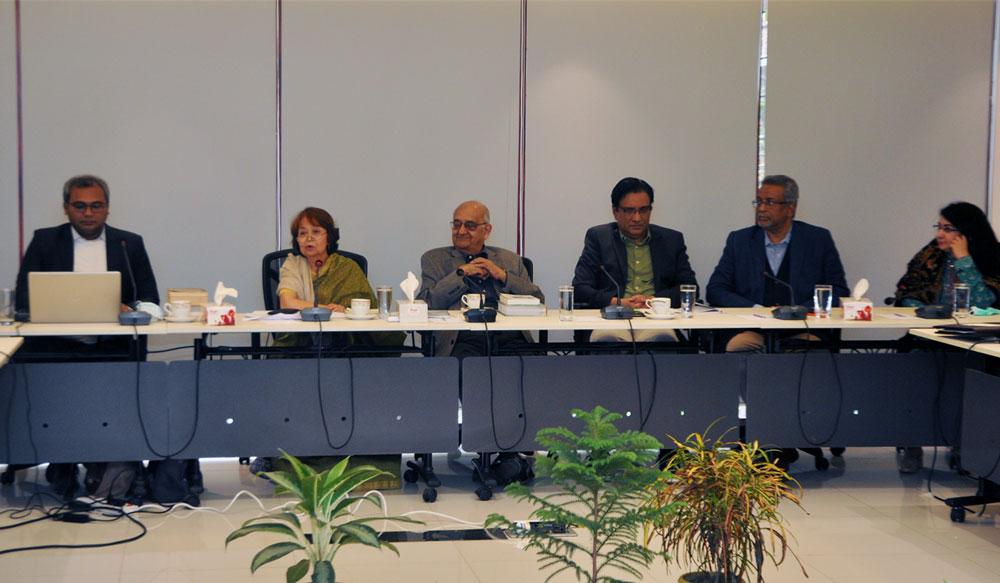
In our nation, there is a noticeable lack of discourse and literature regarding the history of economic and political thought. Nevertheless, the younger generation expresses a genuine interest in delving into the debates and discussions that took place decades ago. A profound link exists between the ongoing discussions and those that transpired in the past. Efforts should be directed towards enlightening the younger generation about these historical discussions, fostering a deeper understanding of the foundations that have shaped contemporary debates.
Professor Rehman Sobhan’s profound insights into economic and political matters have played a pivotal role in shaping ongoing discussions. His extensive writings on these subjects establish him as a key intellectual figure. Therefore, engaging in a direct conversation with him regarding the evolution of Bangladesh’s politics and economy, as well as the institutionalisation of public reasoning, promises to be an exceptionally enlightening experience. Such a discourse holds the potential to deepen our understanding of the historical context, providing invaluable perspectives on the current state of Bangladesh’s political and economic landscape while shedding light on the crucial aspects of public discourse and reasoning.
In this context, the Centre for Policy Dialogue (CPD) organised an in-house discussion titled ‘Political Thinking of Rehman Sobhan’ on 3 January, 2023 at the CPD premises. The discussion revolved around three key themes: Professor Rehman Sobhan’s political thinking, the concept of justice as portrayed in his writings, and the institutionalisation of public reasoning within the scope of Rehman Sobhan’s work.
Professor Rounaq Jahan, Distinguished Fellow, CPD, chaired the session and said ‘Exchanging views on political and economic issues fosters a collaborative environment that encourages critical thinking, broadens perspectives, and enhances one’s grasp of the intricate dynamics shaping our societal landscape’.
‘Professor Sobhan’s writings illuminate his endeavor to strike a balance between nationalism and socialism, similar to the efforts made by Karl Marx’ remarked Dr Mirza M Hassan, Senior Research Fellow, BRAC Institute of Governance and Development (BIGD). He also underscored how multi-class politics and revolutionary class struggle are reflected in Professor Sobhan’s writings.
While discussing the institutionalisation of public reasoning, Dr Syed Akhtar Mahmood, Former Lead Private Sector Specialist, World Bank Group, said ‘The original idea was to make the research work and findings of think tanks more accessible to the public. These findings were to inform public debate and hopefully have an impact on policy.”
Mr Ahmed Javed Chowdhury, Founder Banglar Pathshala, delved into the concept of justice, asserting that Professor Sobhan’s work underscores the pivotal role that institutions play in the implementation of justice within society.
Professor Rehman Sobhan, Chairman, CPD, responded to the questions and said, ‘My political perspectives have undergone significant evolution from the era of basic democracy to the present day’. During the discussion on the concept of justice, he emphasised the aim of establishing a system in which the labour and the value added by the working class’s efforts are more equitably rewarded.
Commenting on the institutionalisation of public reasoning, CPD’s founding chairman highlighted ‘The initial aim of establishing CPD was creating a meeting point between politicians, policymakers, relevant stakeholders and researchers’.
The discussion was attended by researchers, academics and CPD officials, many of whom participated and shared their valuable insights.

